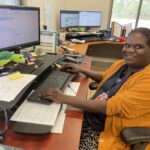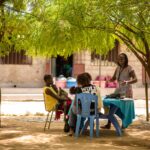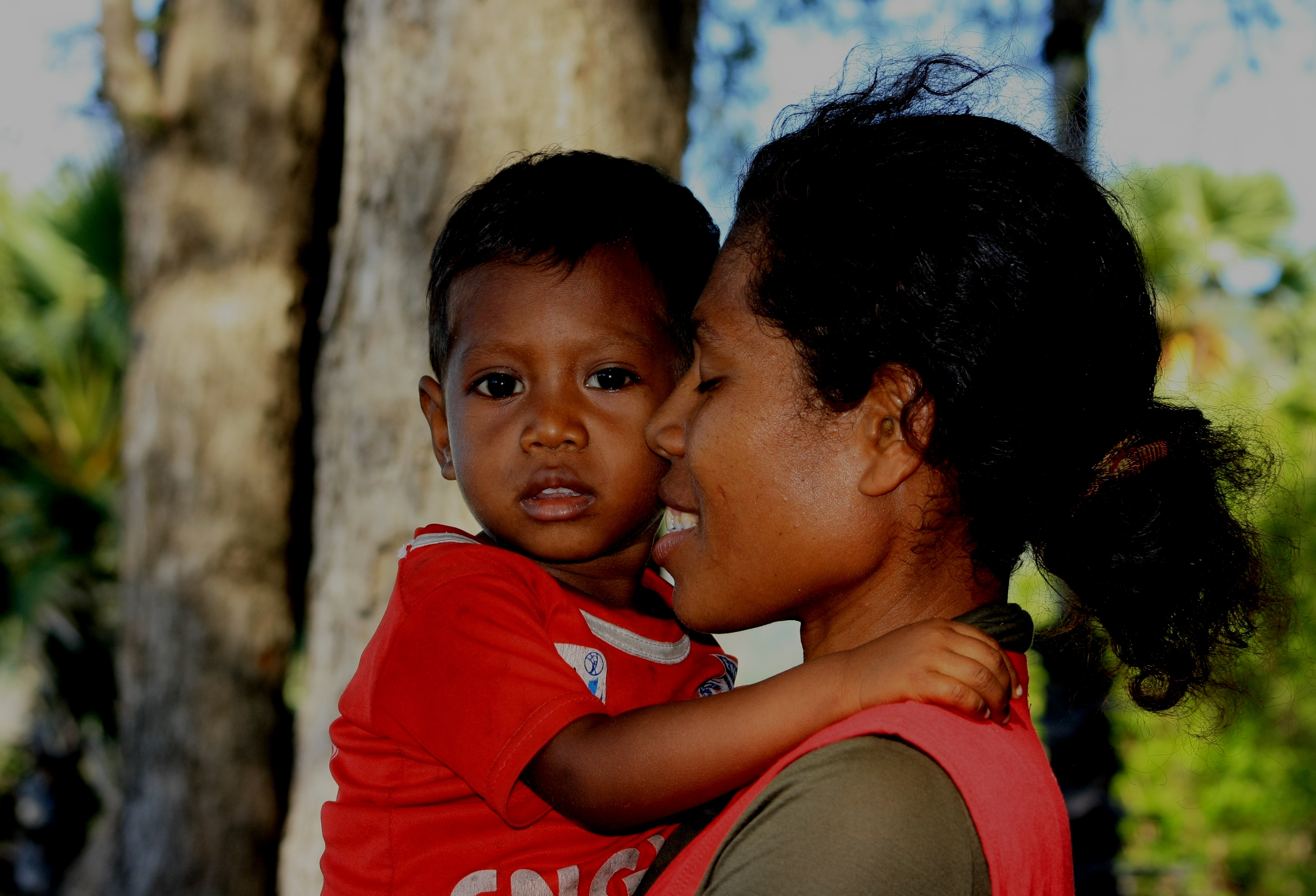Empowering lives through partnership
Pilot Jason Job put on his life jacket for the short fifteen minute flight from Dili to nearby Atauro Island in the GA8 aircraft, MQO. He was about to fly staff from one of MAF Timor-Leste’s frequent fliers, an organisation called Empreza Di’ak.
Empreza Di’ak means ‘Good Business’ in the local language of Tetun, and has a vision to see people of Timor-Leste build a better life, through the combination of their own efforts and the power of business.
How it began
The story behind Empreza Di’ak begins with a man called Filipe Alfaiate. Filipe was an international lawyer with multinational law firm in London, England, when he was invited to work in Timor-Leste as legal advisor to the Prime Minister. He took the role and for one and a half years worked on the drafting of the National Strategic Plan, instrumental in forming policy for the country. In 2010, with a dream of implementing many of the ideas mooted at government level, Filipe left to co-found Empreza Di’ak with his wife, Ariana, to help improve the lives of Timorese people.
An early project initiated by the organisation was Ikan Di’ak, meaning ‘Good Fish’. Empreza Di’ak helped remote fishing communities on Atoura to prepare quality dried fish products for sale. Dried fish is in demand across Timor-Leste, but approximately three quarters of the supply is imported. Training was provided for local fishermen in building a simple solar drying tent. Instruction was then provided in the fish drying process, a responsibility predominantly held by women. This original pilot project directly assisted 20-25 people from seven different communities. The measurable impact was an impressive increase in weekly income per family from $8 to $80.
For Ariana, the Programme Manager, there was an additional benefit. “Women were not [previously] engaged in selling fresh fish. Now, with the fish drying business, it is predominantly the women who do the drying. In fact, the women now buy the fish from the men and then dry the fish and receive the money directly, rather than receiving just a proportion of the money from the men. That’s very empowering.”
A former VSA volunteer, Tracey Weymss, assisted in finding alternative markets for surplus dried fish. “People had had dried fish before that had been prepared badly so they were naturally suspicious,” Tracey shares. “Developing a ‘brand’ was a kind of quality assurance so people began to realize Ikan Di’ak had informal quality assurance – all fish prepared to Empreza Di’ak standards.” This ultimately led to establishing links with supermarkets and creating simple marketing materials to promote the product further afield.
The ongoing and ever growing effects
Pilot Jason Job was able to travel with the Empreza Di’ak staff into the community to see first-hand the impact this six-year old organisation is continuing to have.
MAF pilots often don’t have the time to visit the organisations and communities they fly for. Due to other bookings or urgent medical evacuation flights, they often simply deliver their passengers to their destination and head off for more flights. Getting a glimpse into what Empreza Di’ak does on the ground was interesting and inspiring.
In 2015 Empreza Di’ak opened their new island community and business centre. This was followed by the initiation of projects including free range duck farming, seaweed drying, a tilapia pond, compost production and garden beds, and the opening of a beautiful local handicraft shop. Training and monthly community events are provided to local entrepreneurs on an ongoing basis.
Ready-to-drink coconuts are the focus of another project facilitate they facilitate. Organic, fresh and hydrating, they are now being sold in supermarkets in Dili, as well as on Atauro Island. Brown coconuts are small enough to fit in a fridge and can easily be opened with a key or pen. By promoting ready-to-drink coconuts the organisation assists local communities in creating new business opportunities and providing easy access to market
For Jason, visiting the community centre first involved a ride from the airport in the back of a local taxi – a motorbike with a trailer attached to the back. The trailer was loaded with several of the Empreza Di’ak staff and piles of supplies. During the visit Jason saw the variety of vegetables being grown, and how different types of fish are being nurtured to see what is best for local sale and consumption. He met local employees who are benefitting from the training and encouragement this group provides. Since Empreza Di’ak began working on the island in 2011 at least three hundred people have received direct supported by the organisation, just on Atauro Island.
In August 2016, Empreza Di’ak also facilitated eye tests for over 100 men and women. Poor artisans with bad eyesight results in low quality products and less income for families. Reading glasses were provided as required, crucial for detailed, intricate craft work, opening a new world of opportunities.
How MAF has made a difference
Filipe, who is based in Dili, used to travel by speed boat out to the island every three weeks so he could evaluate the programme and train staff. The boat took up to three hours each way (depending on weather), would mean an overnight stay in Atauro and was relatively expensive. But since the airstrip was opened on Atauro Island, Filipe has been flying more often with MAF. “It’s only a 15 minute trip so I can go more regularly and be in and out in a day.” He explains. “The real difference is that there is now medical evacuation available if it’s needed, so more staff can be based there with confidence. If something goes wrong, we know that we can get them out quickly.”
Sadly, Jason’s visit to Empreza Di’ak’s programme on Atauro didn’t last as long as he had expected when an urgent call for medical evacuation from another town was received. As he was the only pilot able to fly that day, he needed to leave the staff to finish their work and returned later in the day to collect them.
MAF partners with many organisations around the world, like Empreza Di’ak, who are improving the health and well-being of isolated people, like those on Atauro Island.











